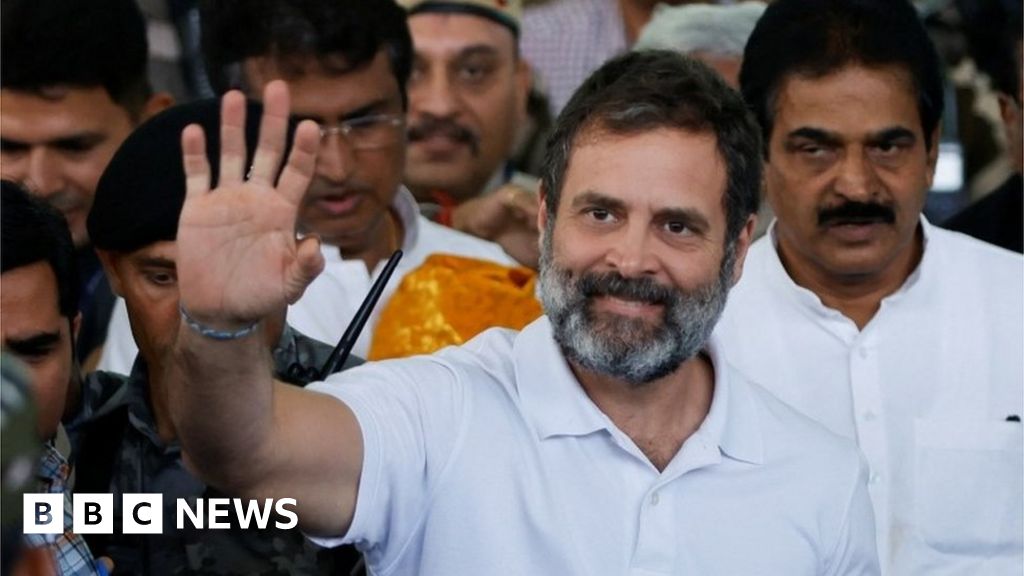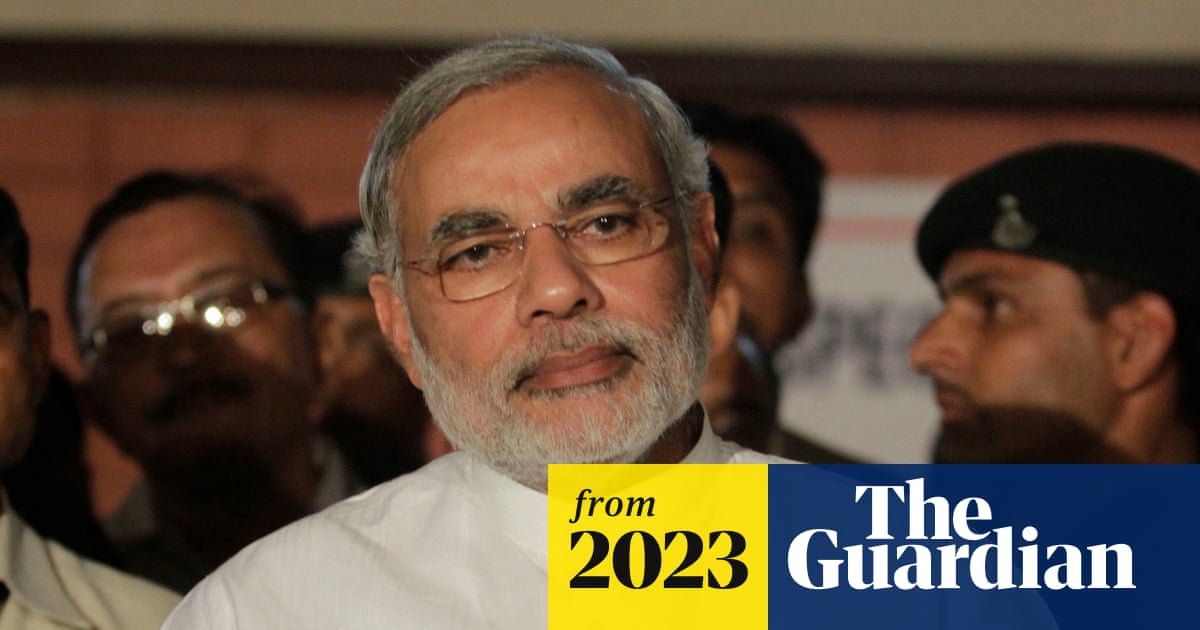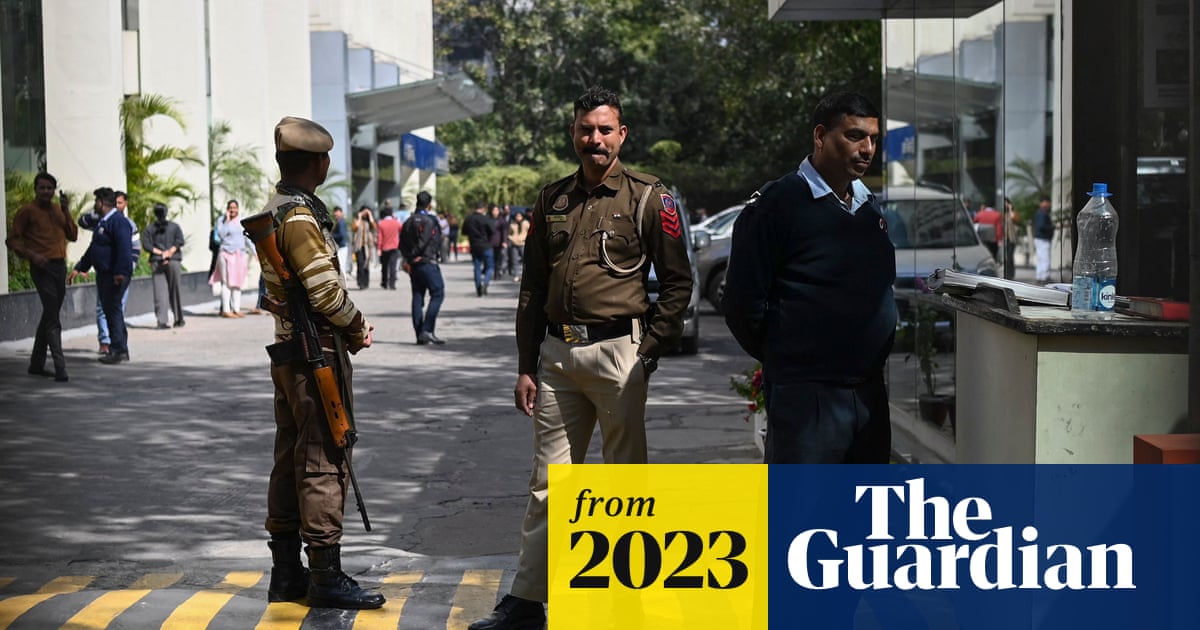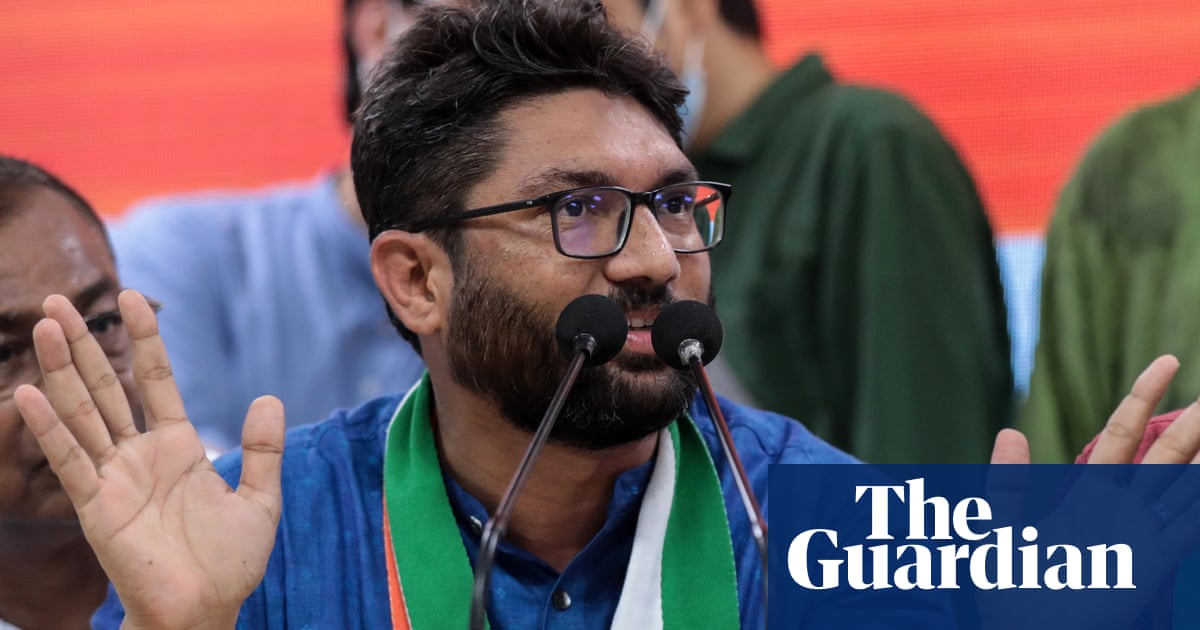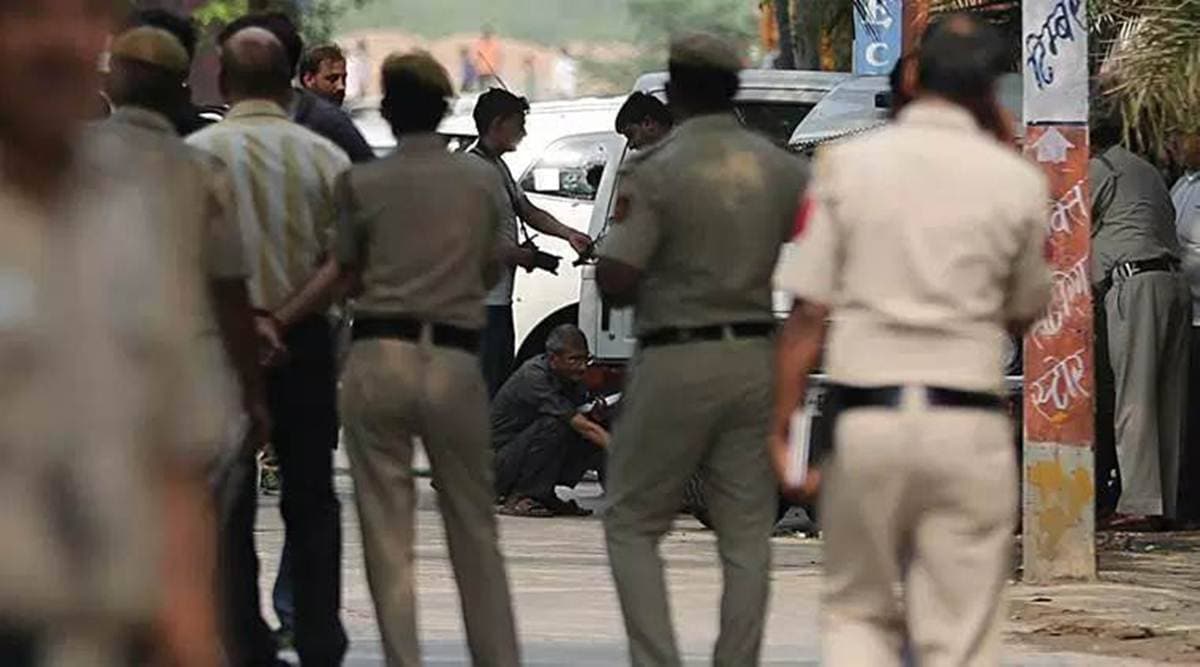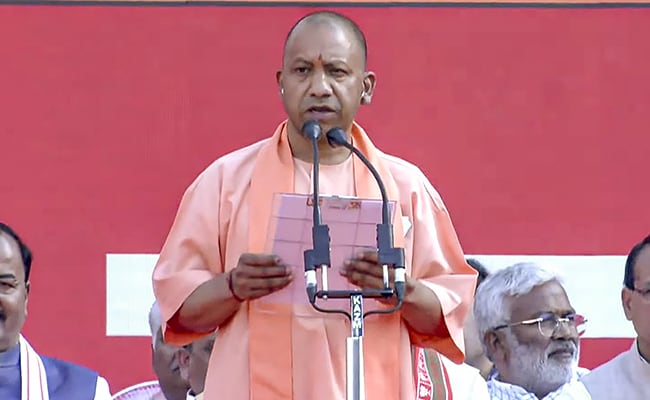Indian government gives itself the power to “fact-check” and delete social media posts

Dhiraj Singh/Bloomberg/Getty Images
By ADNAN BHAT
12 APRIL 2023 • NEW DELHI, INDIA
The Indian government on April 6 announced a state-run fact-checking unit that will have sweeping powers to label any piece of information related to the government as “fake, false or misleading” and have it removed from social media. The country has tweaked its tech rules that now require platforms such as Facebook, Twitter, and Instagram to take down content flagged by the fact-checking body. Internet service providers are also expected to block URLs to such content. Failure to comply could result in the platforms losing safe harbor protection that safeguards them from legal action against any content posted by their users, said India’s minister of information technology, Rajeev Chandrasekhar.
“The amended rules now also make it obligatory on the intermediaries to not to publish, share or host fake, false or misleading information in respect of any business of the Central Government. [This] fake, false or misleading information will [be] identified by the notified Fact Check Unit of the Central Government,” the government said in a press release.
The government’s move to institute such rules without any right to appeal has raised concerns among journalists, internet freedom activists, and opposition parties in the country.
“This will not just have an impact on the media and those asking questions to the government,” Bal said. “This government wants absolute control on the narrative and through this amendment, they can assert that control legally.” Bal said that instead of seeking inputs from stakeholders, the government appears to have a specific objective of suppressing any kind of independent reporting on its actions.
On April 11, comedian Kunal Kamra filed a court petition challenging the amendment. The Bombay High Court, in response, has asked the government to clarify if there is any rationale that justifies the need for this amendment.
Editors Guild of India, an independent body of journalists, released a statement saying they were “deeply disturbed” by the amendment, claiming this would give the government “sweeping powers” and have “deeply adverse implications” for press freedom in the country.
“In effect, the government has given itself absolute power to determine what is fake or not, in respect of its own work, and order takedown,” the statement read. “The so-called ‘fact-checking unit’ can be constituted by the ministry, by a simple ‘notification published in the Official Gazette.’” The guild also urged the government to withdraw the “draconian” law and hold consultations with the media.
Several opposition parties in the country have criticized the move, calling it akin to imposing “censorship.”
Supriya Shrinate, spokesperson of the party in opposition, the Indian National Congress, told Rest of World the new amendment is not just undemocratic but also unconstitutional, and that it will severely impact freedom of speech in the country. “The government is undermining all democratic processes in the country,” she said. “Nobody is allowed to ask questions. This BJP [Bharatiya Janata Party] government is afraid of facing questions and facts. How can the government be the judge, jury, and executioner of what is fake news, when BJP is the biggest manufacturer of fake news?”
Rest of World reached out to India’s Ministry of Electronics and Information Technology (MeitY) with a set of questions, but did not get a response at the time of publishing. This story will be updated as and when the ministry responds.
Prateek Waghre, policy director at digital rights advocacy group Internet Freedom Foundation, raised concerns over how the new law gives the government powers to define what is “fake, false or misleading” without any accountability. “We have seen the Press Information Bureau getting it wrong multiple times in the past. So there is a precedent for it,” he told Rest of World. The Press Information Bureau (PIB) is a nodal agency that issues press releases for the government.
“There could also be situations where someone reports data on a government scheme and the government contests it by saying they have no record of it,” Waghre said. “They can then call any substantiation or number misleading because as per their record, they have no data on it … And then the [fact-checking] unit flags it as misleading and then, are social media intermediaries, ISP, cloud services, and DNS services expected to honor that fact-check by restricting access to that website?”
MeitY first published draft rules for this amendment in January 2023. The rules mandated that intermediaries remove any post tagged as “fake news” by the PIB or any other agency authorized for fact-checking by the government. After receiving severe criticism from the media, the government announced an extension on the deadline for feedback on the amendment. But according to stakeholders who spoke to Rest of World, no meaningful consultations were held.
The process of seeking feedback from stakeholders seemed rushed, which raises questions about the government’s intention, said Waghre.
“There was an ongoing set of consultations [on rules for] online gaming intermediaries,” he explained. “On the day of the deadline, along with an extension, this particular consultation was inserted. This meant there was a very short period of time for stakeholders to respond to the proposed amendments that affect everybody at a very fundamental level.”
While the draft rules observed that the PIB would be tasked with the fact-checking, Chandrasekhar has since clarified that the government plans to set up a new fact-checking unit, members of which will be chosen at the discretion of the government."
Journalists, opposition parties, and advocacy groups are worried what this “absolute power” means for press freedom in India.

Dhiraj Singh/Bloomberg/Getty Images
By ADNAN BHAT
12 APRIL 2023 • NEW DELHI, INDIA
The Indian government on April 6 announced a state-run fact-checking unit that will have sweeping powers to label any piece of information related to the government as “fake, false or misleading” and have it removed from social media. The country has tweaked its tech rules that now require platforms such as Facebook, Twitter, and Instagram to take down content flagged by the fact-checking body. Internet service providers are also expected to block URLs to such content. Failure to comply could result in the platforms losing safe harbor protection that safeguards them from legal action against any content posted by their users, said India’s minister of information technology, Rajeev Chandrasekhar.
“The amended rules now also make it obligatory on the intermediaries to not to publish, share or host fake, false or misleading information in respect of any business of the Central Government. [This] fake, false or misleading information will [be] identified by the notified Fact Check Unit of the Central Government,” the government said in a press release.
The government’s move to institute such rules without any right to appeal has raised concerns among journalists, internet freedom activists, and opposition parties in the country.
Hartosh Singh Bal, political editor of independent investigative magazine The Caravan, told Rest of World that through this new amendment, “the government has essentially appointed itself the adjudicator of truth.”“In effect, the government has given itself absolute power to determine what is fake or not, in respect of its own work, and order takedown.”
“This will not just have an impact on the media and those asking questions to the government,” Bal said. “This government wants absolute control on the narrative and through this amendment, they can assert that control legally.” Bal said that instead of seeking inputs from stakeholders, the government appears to have a specific objective of suppressing any kind of independent reporting on its actions.
On April 11, comedian Kunal Kamra filed a court petition challenging the amendment. The Bombay High Court, in response, has asked the government to clarify if there is any rationale that justifies the need for this amendment.
Editors Guild of India, an independent body of journalists, released a statement saying they were “deeply disturbed” by the amendment, claiming this would give the government “sweeping powers” and have “deeply adverse implications” for press freedom in the country.
“In effect, the government has given itself absolute power to determine what is fake or not, in respect of its own work, and order takedown,” the statement read. “The so-called ‘fact-checking unit’ can be constituted by the ministry, by a simple ‘notification published in the Official Gazette.’” The guild also urged the government to withdraw the “draconian” law and hold consultations with the media.
Several opposition parties in the country have criticized the move, calling it akin to imposing “censorship.”
Supriya Shrinate, spokesperson of the party in opposition, the Indian National Congress, told Rest of World the new amendment is not just undemocratic but also unconstitutional, and that it will severely impact freedom of speech in the country. “The government is undermining all democratic processes in the country,” she said. “Nobody is allowed to ask questions. This BJP [Bharatiya Janata Party] government is afraid of facing questions and facts. How can the government be the judge, jury, and executioner of what is fake news, when BJP is the biggest manufacturer of fake news?”
Rest of World reached out to India’s Ministry of Electronics and Information Technology (MeitY) with a set of questions, but did not get a response at the time of publishing. This story will be updated as and when the ministry responds.
Prateek Waghre, policy director at digital rights advocacy group Internet Freedom Foundation, raised concerns over how the new law gives the government powers to define what is “fake, false or misleading” without any accountability. “We have seen the Press Information Bureau getting it wrong multiple times in the past. So there is a precedent for it,” he told Rest of World. The Press Information Bureau (PIB) is a nodal agency that issues press releases for the government.
“There could also be situations where someone reports data on a government scheme and the government contests it by saying they have no record of it,” Waghre said. “They can then call any substantiation or number misleading because as per their record, they have no data on it … And then the [fact-checking] unit flags it as misleading and then, are social media intermediaries, ISP, cloud services, and DNS services expected to honor that fact-check by restricting access to that website?”
MeitY first published draft rules for this amendment in January 2023. The rules mandated that intermediaries remove any post tagged as “fake news” by the PIB or any other agency authorized for fact-checking by the government. After receiving severe criticism from the media, the government announced an extension on the deadline for feedback on the amendment. But according to stakeholders who spoke to Rest of World, no meaningful consultations were held.
The process of seeking feedback from stakeholders seemed rushed, which raises questions about the government’s intention, said Waghre.
“There was an ongoing set of consultations [on rules for] online gaming intermediaries,” he explained. “On the day of the deadline, along with an extension, this particular consultation was inserted. This meant there was a very short period of time for stakeholders to respond to the proposed amendments that affect everybody at a very fundamental level.”
While the draft rules observed that the PIB would be tasked with the fact-checking, Chandrasekhar has since clarified that the government plans to set up a new fact-checking unit, members of which will be chosen at the discretion of the government."

